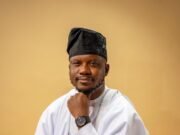Allowing traditional councils to have autonomy from the state executive will fast track and encourage our democratic process and help put the control of security directly in the hands of the people, Raphael Afonja, former commissioner for public works in the administration of Seyi Makinde, has said.
According to the professor and former military officer in a chat with OYOINSIGHT.COM from his base in the United States of America, there is a need to stop putting Obas in uncompromising positions just so they can receive favor in the eyes of their state governors.
Rather, the Ogbomoso-born chieftain of the Peoples Democratic Party, PDP, explained that “they should not be penalized for wanting to speak the truth on behalf of their people. Some communities have been recently wiped out because of the invasion of herdsmen especially in Ogbomosho, Oke-Ogun, and Ibarapa areas. Some are currently being threatened by the breakdown in security in the state. Farmers in these communities are on the verge of losing their livelihood. Others have died, women are been raped. We, farmers, myself inclusive, do not have a voice to make our cases because traditional rulers are voiceless.
“A government that withholds development/security from a community because they speak or vote against them must be an enemy of progress of the people. The present-day governments and judiciary can still serve as a check and balance but the traditional council should have the authority to governs these institutions. We must stop the politicization of our traditional institutions, return to our pre-colonial society to make our state and country great again,” the professor of civil and environmental engineering argued.
He, however, said that the state houses of assembly across the country need to have policy debates about the role of traditional institutions and make it a priority for this separation to happen as soon as possible.
“There’s a need to change the laws that turned our traditional rulers into slaves of the state and politicians. Respecting traditional rulers, seeing them as equal partners, and giving them a voice without them worrying about retribution from the state executive governors or the LGA chairman will allow them to fight for the development and security needs of their people.
“The best way for the government to quickly empower grassroots people and disseminate wealth is through traditional institutions. They live with their people and understand their needs but because of the pressure from selfish and greedy politicians, most of them can’t advocate for their people. Everyone needs a voice and if these traditional institutions get the platform to do so, most politicians will be held accountable and will work for the people they swear to serve.
The security consultant and fellow of the Nigeria Society of Engineering added that “the significance of our traditional institutions cannot be ignored when it comes to security, social justice system, democracy, and economic development. While some might caution supporting the participation of traditional leaders in policymaking, it’s important to understand that traditional leadership of local development. Efforts should be allowed to develop spontaneously, which will bring about social and economic growth in their communities.”
He explained that “it’s time we give back our traditional rulers their rights and allow them to serve the people”.

































